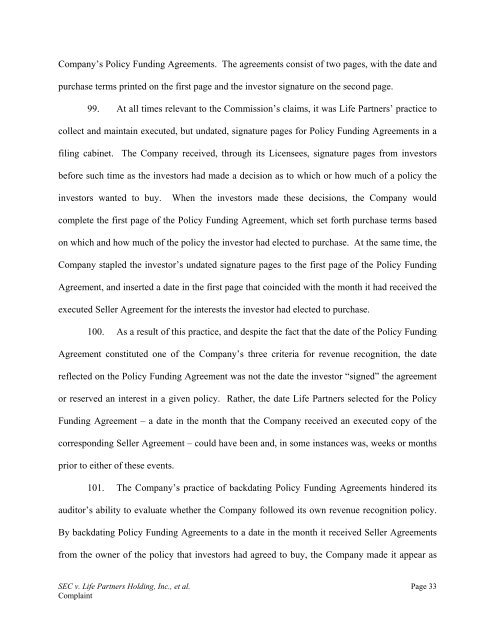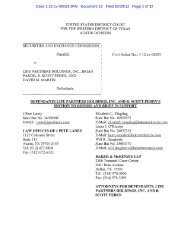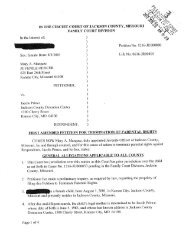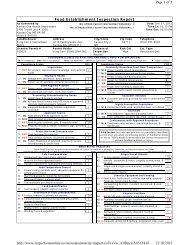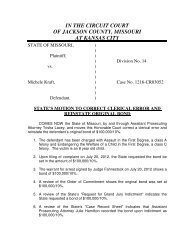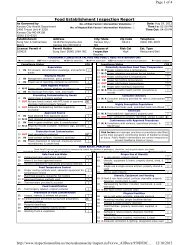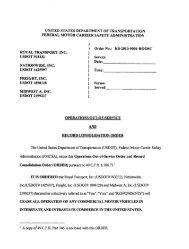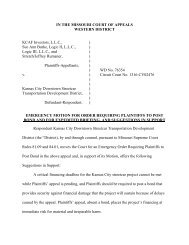Life Partners Holdings, Inc., Brian D. Pardo, R. Scott Peden, and ...
Life Partners Holdings, Inc., Brian D. Pardo, R. Scott Peden, and ...
Life Partners Holdings, Inc., Brian D. Pardo, R. Scott Peden, and ...
Create successful ePaper yourself
Turn your PDF publications into a flip-book with our unique Google optimized e-Paper software.
Company’s Policy Funding Agreements. The agreements consist of two pages, with the date <strong>and</strong>purchase terms printed on the first page <strong>and</strong> the investor signature on the second page.99. At all times relevant to the Commission’s claims, it was <strong>Life</strong> <strong>Partners</strong>’ practice tocollect <strong>and</strong> maintain executed, but undated, signature pages for Policy Funding Agreements in afiling cabinet. The Company received, through its Licensees, signature pages from investorsbefore such time as the investors had made a decision as to which or how much of a policy theinvestors wanted to buy. When the investors made these decisions, the Company wouldcomplete the first page of the Policy Funding Agreement, which set forth purchase terms basedon which <strong>and</strong> how much of the policy the investor had elected to purchase. At the same time, theCompany stapled the investor’s undated signature pages to the first page of the Policy FundingAgreement, <strong>and</strong> inserted a date in the first page that coincided with the month it had received theexecuted Seller Agreement for the interests the investor had elected to purchase.100. As a result of this practice, <strong>and</strong> despite the fact that the date of the Policy FundingAgreement constituted one of the Company’s three criteria for revenue recognition, the datereflected on the Policy Funding Agreement was not the date the investor “signed” the agreementor reserved an interest in a given policy. Rather, the date <strong>Life</strong> <strong>Partners</strong> selected for the PolicyFunding Agreement – a date in the month that the Company received an executed copy of thecorresponding Seller Agreement – could have been <strong>and</strong>, in some instances was, weeks or monthsprior to either of these events.101. The Company’s practice of backdating Policy Funding Agreements hindered itsauditor’s ability to evaluate whether the Company followed its own revenue recognition policy.By backdating Policy Funding Agreements to a date in the month it received Seller Agreementsfrom the owner of the policy that investors had agreed to buy, the Company made it appear asSEC v. <strong>Life</strong> <strong>Partners</strong> Holding, <strong>Inc</strong>., et al. Page 33Complaint


